Real World Haskell: Code You Can Believe In 1st Edition 13432
-
ISBN978-0596514983
-
Бренд
-
Автор
-
Рік2008
-
МоваАнглійська
-
ІлюстраціїЧорно-білі
This easy-to-use fast-moving tutorial introduces you to functional programming with Haskell. You'll learn how to use Haskell in a variety of practical ways, from short scripts to large and demanding applications. Real World Haskell takes you through the basics of functional programming at a brisk pace, and then helps you increase your understanding of Haskell in real-world issues like I/O, performance, dealing with data, concurrency, and more as you move through each chapter.
About the Author
Bryan O Sullivan is an Irish hacker writer and who likes distributed systems, open source software, and programming languages. He was a member of the initial design team for the Jini network service architecture (subsequently open sourced as Apache River). He has made significant contributions to, and written a book about the popular Mercurial revision control system. He lives in San Francisco with his wife and sons. Whenever he can, he runs off to climb rocks.
John Goerzen is an American hacker and author. He has written a number of real-world Haskell libraries and applications, including the HDBC database interface, the ConfigFile configuration file interface, a podcast downloader, and various other libraries relating to networks, parsing, logging, and POSIX code. John has been a developer for the Debian GNU/Linux operating system project for over 10 years and maintains numerous Haskell libraries and code for Debian. He also served as President of Software in the Public Interest, Inc., the legal parent organization of Debian. John lives in rural Kansas with his wife and son, where he enjoys photography and geocaching.
Don Stewart is an Australian hacker based in Portland, Oregon. Don has been involved in a range of diverse Haskell projects, including practical libraries, such as Data.ByteString and Data.Binary, as well as applying the Haskell philosophy to real-world applications including компілятори, linkers, text editors, network servers, and systems software. His recent work has focused on optimizing Haskell for high-performance scenarios, using techniques from term rewriting.
-
Нова ПоштаБезкоштовно від
3'000,00 ₴ -
УкрпоштаБезкоштовно від
1'000,00 ₴ -
Meest ПоштаБезкоштовно від
3'000,00 ₴
Характеристики
- Бренд
- Автор
- КатегоріяПрограмування
- Рік2008
- Сторінок714
- Формат170х240 мм
- ОбкладинкаМ'яка
- Тип паперуОфсетний
- МоваАнглійська
- ІлюстраціїЧорно-білі
- Термін поставки7-10 дней
Від видавця
This easy-to-use fast-moving tutorial introduces you to functional programming with Haskell. You'll learn how to use Haskell in a variety of practical ways, from short scripts to large and demanding applications. Real World Haskell takes you through the basics of functional programming at a brisk pace, and then helps you increase your understanding of Haskell in real-world issues like I/O, performance, dealing with data, concurrency, and more as you move through each chapter.
About the Author
Bryan O Sullivan is an Irish hacker writer and who likes distributed systems, open source software, and programming languages. He was a member of the initial design team for the Jini network service architecture (subsequently open sourced as Apache River). He has made significant contributions to, and written a book about the popular Mercurial revision control system. He lives in San Francisco with his wife and sons. Whenever he can, he runs off to climb rocks.
John Goerzen is an American hacker and author. He has written a number of real-world Haskell libraries and applications, including the HDBC database interface, the ConfigFile configuration file interface, a podcast downloader, and various other libraries relating to networks, parsing, logging, and POSIX code. John has been a developer for the Debian GNU/Linux operating system project for over 10 years and maintains numerous Haskell libraries and code for Debian. He also served as President of Software in the Public Interest, Inc., the legal parent organization of Debian. John lives in rural Kansas with his wife and son, where he enjoys photography and geocaching.
Don Stewart is an Australian hacker based in Portland, Oregon. Don has been involved in a range of diverse Haskell projects, including practical libraries, such as Data.ByteString and Data.Binary, as well as applying the Haskell philosophy to real-world applications including компілятори, linkers, text editors, network servers, and systems software. His recent work has focused on optimizing Haskell for high-performance scenarios, using techniques from term rewriting.
Зміст
Table of Contents
Chapter 1 Getting Started
Your Haskell Environment
Getting Started with ghci, the Interpreter
Basic Interaction: Using ghci as a Calculator
Command-Line Editing in ghci
Lists
Strings and Characters
First Steps with Types
A Simple Program
Chapter 2 Types and Functions
Why Care About Types?
Haskell's Type System
What to Expect from the Type System
Some Common Basic Types
Function Application
Useful Composite Data Types: Lists and Tuples
Functions over Lists and Tuples
Function Types and Purity
Haskell Source Files, and Writing Simple Functions
Understanding Evaluation by Example
Polymorphіsm in Haskell
The Type of a Function of More Than One Argument
Why the Fuss over Purity?
Завершення
Chapter 3 Defining Types, Streamlining Functions
Defining a New Data Type
Type Synonyms
Алгебраїчна Data Types
Pattern Matching
Record Syntax
Parameterized Types
Recursive Types
Reporting Errors
Introducing Local Variables
The Offside Rule and Whitespace in an Expression
The case Expression
Common Beginner Mistakes with Patterns
Conditional Evaluation with Guards
Chapter 4 Functional Programming
Thinking in Haskell
A Simple Command-Line Framework
Warming Up: Portably Splitting Lines of Text
Infix Functions
Working with Lists
How to Think About Loops
Anonymous (lambda) Functions
Partial Function Application and Currying
As-patterns
Code Reuse Through Composition
Tips for Writing Readable Code
Space Leaks and Strict Evaluation
Chapter 5 Writing a Library: Working with JSON Data
A Whirlwind Tour of JSON
Representing Data in JSON Haskell
The Anatomy of a Haskell Module
Compiling Haskell Source
Generating a Haskell Program and Importing Modules
Printing JSON Data
Type Inference Is a Double-Edged Sword
A More General Look at Rendering
Developing Haskell Code Without Going Nuts
Pretty Printing a String
Arrays and Objects, and the Module Header
Writing a Module Header
Fleshing Out the Pretty-Printing Library
Creating a Package
Practical Pointers and Further Reading
Chapter 6 Using Typeclasses
The Need for Typeclasses
What Are Typeclasses?
Declaring Typeclass Instances
Important Built-in Typeclasses
Automatic Derivation
Typeclasses at Work: Making JSON Easier to Use
Living in an Open World
How to Give a Type a New Identity
JSON Typeclasses Without Overlapping Instances
The Dreaded Monomorphism Restriction
Завершення
Chapter 7 I/O
Classic I/O in Haskell
Working with Files and Handles
Extended Example: Functional I/O and Temporary Files
Lazy I/O
The IO Монада
Is Haskell Really Imperative?
Side Effects with Lazy I/O
Buffering
Reading Command-Line Arguments
Environment Variables
Chapter 8 Efficient File Processing, Regular Expressions, and Filename Matching
Efficient File Processing
Filename Matching
Regular Expressions in Haskell
More About Regular Expressions
Translating a glob Pattern into a Regular Expression
An important Aside: Writing Lazy Functions
Making Use of Our Pattern Matcher
Handling Errors Through API Design
Putting Our Code to Work
Chapter 9 I/O Case Study: A Library for Searching the Filesystem
find The Command
Starting Simple: Recursively Listing a Directory
A Naive Finding Function
Predicates: From Poverty to Riches, While Remaining Pure
Sizing a File Safely
A Domain-Specific Language for Predicates
Controlling Traversal
Density, Readability, and the Learning Process
Another Way of Looking at Traversal
Useful Coding Guidelines
Chapter 10 Code Case Study: Parsing a Binary Data Format
Grayscale Files
Parsing a Raw PGM File
Getting Rid of Boilerplate Code
Implicit State
Introducing Функторів
Writing a Functor for Instance Parse
Using Функторів for Parsing
Rewriting Our PGM Parser
Future Directions
Chapter 11 Testing and Quality Assurance
QuickCheck: Type-Based Testing
Testing Case Study: Specifying a Pretty Printer
Measuring Test Coverage with HPC
Chapter 12 Barcode Recognition
A Little Bit About Barcodes
Introducing Arrays
Encoding an EAN-13 Barcode
Constraints on Our Decoder
Divide and Conquer
Turning a Color Image into Something Tractable
What Have We Done to Our Image?
Finding Matching Digits
Life Without Arrays or Hash Tables
Turning Digit Soup into an Answer
Working with Row Data
Pulling It All Together
A Few Comments on Development Style
Chapter 13 Data Structures
Association Lists
Maps
Functions Are Data, Too
Extended Example: /etc/passwd
Extended Example: Numeric Types
Taking Advantage of Functions as Data
General-Purpose Sequences
Chapter 14 Monads
Revisiting Earlier Code Examples
Looking for Shared Patterns
The Монада Typeclass
And Now, a Jargon Moment
Using a New Монада: Show Your Work!
Mixing Pure and Monadic Code
Putting a Few Misconceptions to Rest
Building the Logger Монада
The Maybe Монада
The List Монада
Desugaring of do Blocks
The State Монада
Monads and Функторів
The Монада Laws and Good Coding Style
Chapter 15 Programming with Monads
гри в гольф Practice: Association Lists
Generalized Lifting
Looking for Alternatives
Adventures in the Hiding Plumbing
Separating Interface from Implementation
The Reader Монада
A Return to Automated Deriving
the Hiding IO Монада
Chapter 16 Using Parsec
First Steps with Parsec: Simple CSV Parsing
The sepBy and endBy Комбінатори
Choices and Errors
Extended Example: Full CSV Parser
Parsec and MonadPlus
Parsing a URL-Encoded Query String
Supplanting Regular Expressions for Casual Parsing
Parsing Without Variables
Applicative Функторів for Parsing
Applicative Parsing by Example
Parsing JSON Data
Parsing a HTTP Request
Розділ 17 Interfacing with C: The FFI
Foreign Language Bindings: The Basics
Regular Expressions for Haskell: A Binding for PCRE
Passing String Between Data Haskell and C
Matching on Strings
Chapter 18 Монада Transformers
Motivation: Boilerplate Avoidance
A Simple Монада Transformer Example
Common Patterns in Monads and Монада Transformers
Stacking Multiple Монада Transformers
Moving Down the Stack
Understanding Монада Transformers by Building One
Transformer Stacking Order Is Important
Putting Monads and Монада Transformers into Perspective
Chapter 19 Error Handling
Error Handling with Data Types
Exceptions
Error Handling in Monads
Chapter 20 Systems Programming in Haskell
Running External Programs
Directory and File Information
Program Termination
Dates and Times
Extended Example: Piping
Chapter 21 Using Databases
Overview of HDBC
Installing HDBC and Drivers
Connecting to Databases
Transactions
Simple Queries
SqlValue
Query Parameters
Prepared Statements
Reading Results
Database Metadata
Error Handling
Chapter 22 Extended Example: Web Client Programming
Basic Types
The Database
The Parser
Downloading
Main Program
Chapter 23 GUI Programming with gtk2hs
Installing gtk2hs
Overview of the GTK+ Stack
User Interface Design with Glade
Event-Driven Programming
Initializing the GUI
The Add Podcast Window
Long-Running Tasks
Using Cabal
Chapter 24 Concurrent and Multicore Programming
Defining Concurrency and Parallelism
Concurrent Programming with Threads
Simple Communication Between Threads
The Main Thread and Waiting for Other Threads
Communicating over Channels
Useful Things to Know About
Shared-State Concurrency Is Still Hard
Using Multiple Cores with GHC
Parallel Programming in Haskell
Parallel Strategies and MapReduce
Chapter 25 Profiling and Optimization
Profiling Haskell Programs
Controlling Evaluation
Understanding Core
Advanced Techniques: Fusion
Chapter 26 Advanced Library Design: Building a Bloom Filter
Introducing the Bloom Filter
Use Cases and Package Layout
Basic Design
The ST Монада
Designing an API for Qualified Import
Creating a Mutable Bloom Filter
The Immutable API
Creating a Friendly Interface
Creating a Cabal Package
Testing with QuickCheck
Performance Analysis and Tuning
Chapter 27 Sockets and Syslog
Basic Networking
Communicating with UDP
Communicating with TCP
Chapter 28 Software Transactional Memory
The Basics
Some Simple Examples
STM and Safety
Retrying a Transaction
Choosing Between Alternatives
I/O and STM
Communication Between Threads
A Concurrent Web Link Checker
Practical Aspects of STM
Appendix Installing GHC and Haskell Libraries
Installing GHC
Installing Haskell Software
Appendix Characters, Strings, and Escaping Rules
Writing Character and String Literals
International Language Support
Escaping Text
Colophon
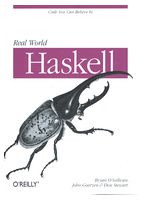

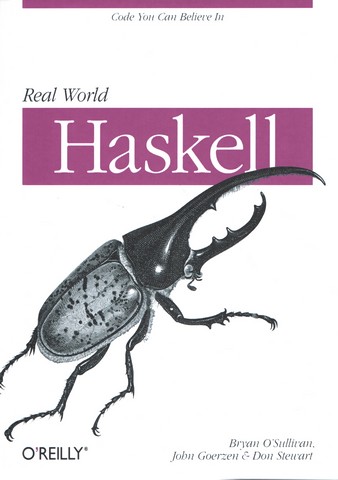
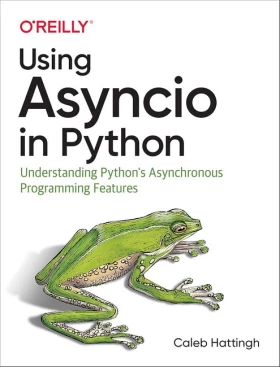

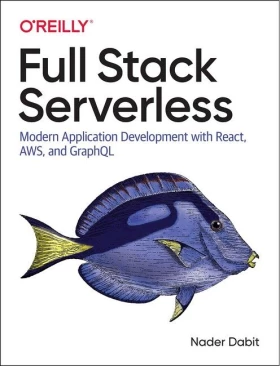


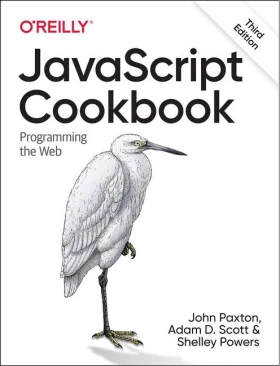





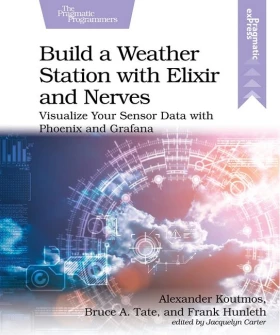

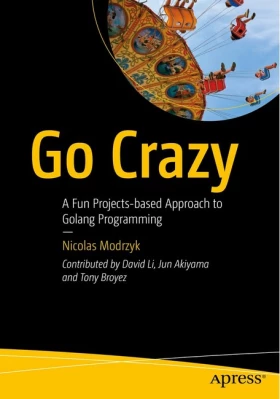
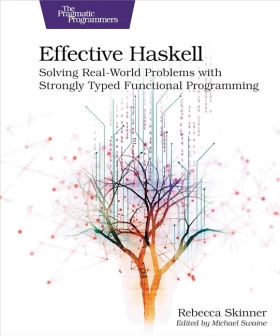


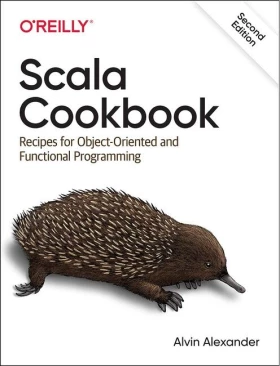
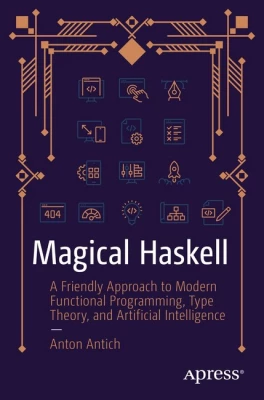


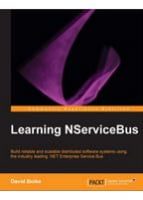





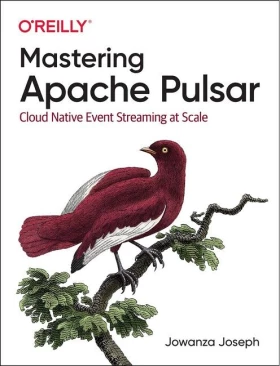


Відгуки про Real World Haskell: Code You Can Believe In 1st Edition